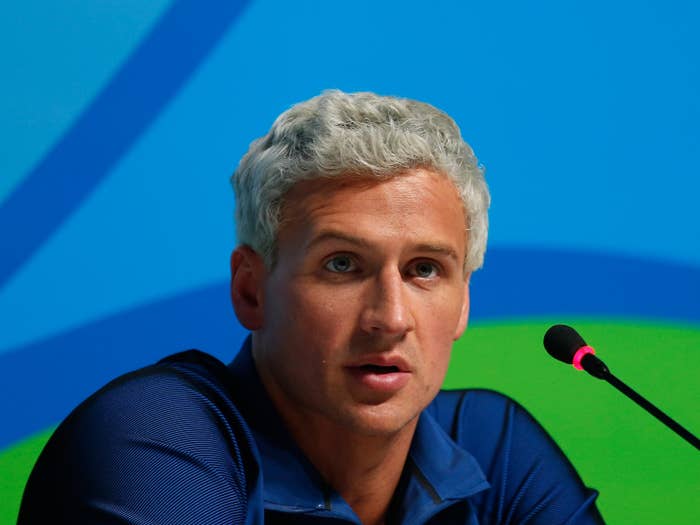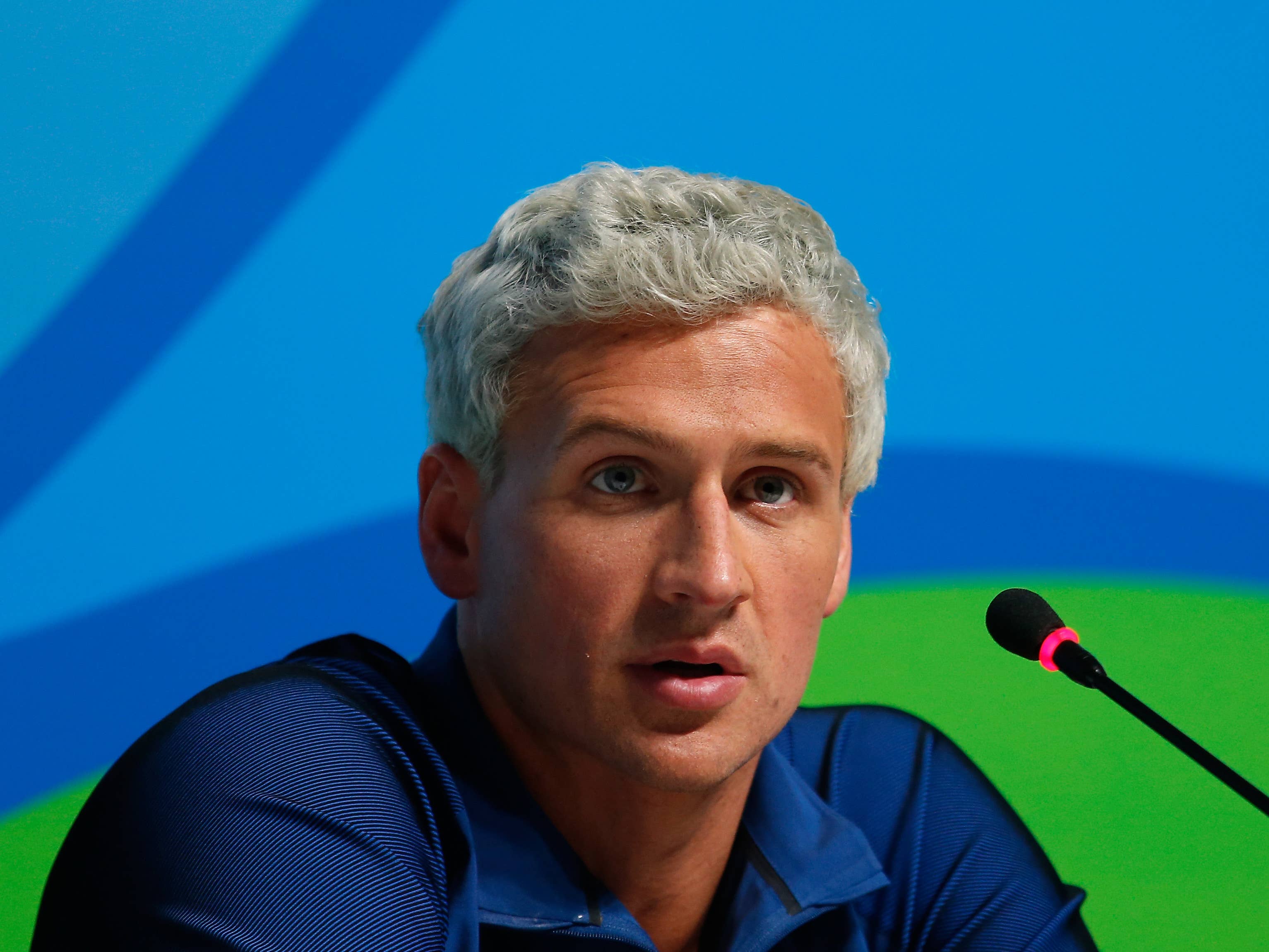
We all know now that Ryan Lochte lied to some extent about being robbed at gunpoint in Rio. The most generous reading of #LochteGate is that the swimmer is kind of a jerk. That’s been the assessment applied by much of the media. What Lochte attempted to pull off in Rio is a little more dangerous than that, however. With his lie and recent apology, Lochte summons an offensive stereotype of an entire country.
As a Brazilian who’s grown up forced to explain to foreigners that, no, Rio is not a real-life City of God, his words are one more reminder of the narrow view Westerners have of countries like Brazil -- stereotypes that overshadow the beauty of the country and have real consequences for residents.
Reports surfaced this past weekend that Lochte, Gunnar Bentz, Jimmy Feigen and Jack Conger -- all Team USA swimmers -- were robbed at gunpoint in Rio after leaving a party. Lochte described the incident on NBC. He claimed the swim team’s taxi was pulled over, they all were forced to the ground and a gun was held to his head. How did Lochte feel at this point? “I was like, whatever,” he said. What a hero. Curiously, he gave another interview Wednesday in which he said they were robbed at a gas station, not on the side of the road.
Thursday afternoon, Rio’s police chief Fernando Veloso announced there was no evidence of a robbery. Veloso offered up a different version of events. And he brought the receipts.
According to police, the Americans’ cab stopped at a gas station because they needed to pee. When they found the door of the bathroom locked, they kicked it down. Then Lochte and company urinated on the ground and on the walls outside of the bathroom before tearing posters on some nearby walls. The police were called and after some confusion, the four athletes paid for the posters to be replaced ($100 reais, or about $33 dollars) and left.
Witnesses corroborate the story and add that the swimmers were intoxicated. There’s also security camera footage to confirm the police account. Not to mention the fact that Lochte’s teammates later gave statements to police admitting the robbery claim was a lie. Despite all of this, Ryan Lochte is sticking to his story, doubling down even in a statement released Friday.
“I want to apologize for my behavior last weekend — for not being more careful and candid in how I described the events of that early morning and for my role in taking the focus away from the many athletes fulfilling their dreams of participating in the Olympics,” Lochte said in a statement posted to Twitter and Instagram.
He continued, “It's traumatic to be out late with your friends in a foreign country - with a language barrier - and have a stranger point a gun at you and demand money to let you leave…”

Ok, so what? Lochte embellished a story to make himself seem more sympathetic, or perhaps more interesting. After all, it’s conceivable that four white Americans would be violently robbed in Rio, right? Maybe we should all be like, “whatever.” Maybe we shouldn’t be listening to the designer of the world’s most obnoxious sneakers anyway. Wrong.
Whether consciously or not, Lochte’s lies and attempts at damage control perpetuate the much-hyped narrative that Brazil is a lawless wasteland where you can always expect the worst.
Stereotypes are funny things. They can make life easier by breaking down large and complex concepts, like an entire race or country, into smaller and more easily controlled units. Brazil’s most prominent stereotype is that it’s, you know, beautiful and all, but pretty hopeless as a country. As a Brazilian living in the U.S., I face this narrow view of a country with a rich, unique culture all the time and while hiding his mistakes behind a stereotype of Brazil might have made Lochte's life easier, it likely made things harder for everyday people in Rio.
According to human rights group Amnesty International, security preparation for the 2016 Olympic games ushered in a new wave of police violence against residents of Rio’s favelas. In fact, an estimated 85,000 security officers, including state police and armed forces, were deployed for the Olympic Games. Of course, that policing was intensified after reports spread that the American swimmers were robbed.
To be sure, Rio is by far not the safest city in the world, and I’ll be the first to admit that Brazil struggles with a number of deep-rooted socio-economic issues, including some insane cases of violence and corruption. Lochte wasn’t calling attention to these issues, however. Instead, he seized on them rather than fessing up to his own criminal wrongdoing and in the process further insulted a city that, for all of its faults, welcomed thousands of athletes and tourists with open arms.
If media outlets weren’t so eager to lap up Lochte’s lie, they might notice that beyond the countless tales of Zika, “poop water”, and stadiums that might collapse at any moment is the still mostly untold story of the first Olympics in Latin America -- which, no matter which way you slice it, is a win for diversity and inclusion.
Allowing a significant international event like the Olympics to reach new corners of the world illustrates real progress. That the media and influential figures like Lochte choose to vilify non-Western countries says a lot about how much we still have to go, culturally and socially.

